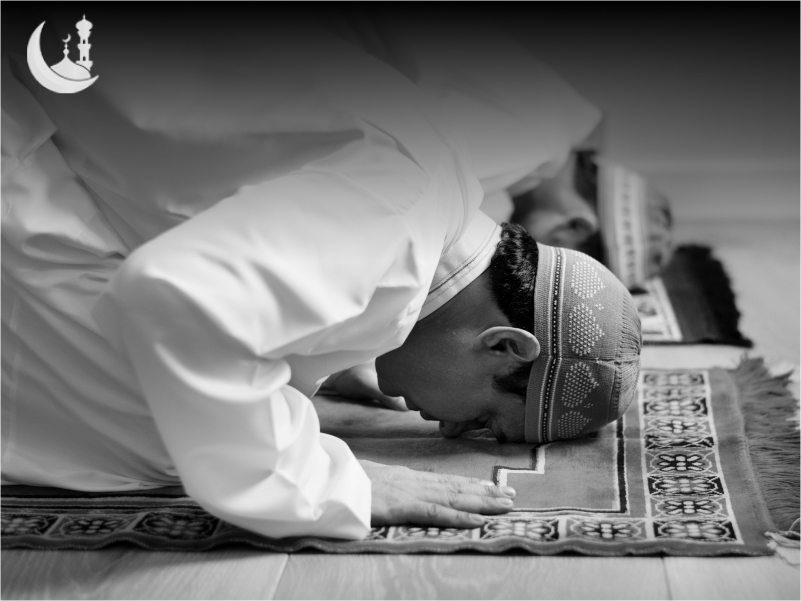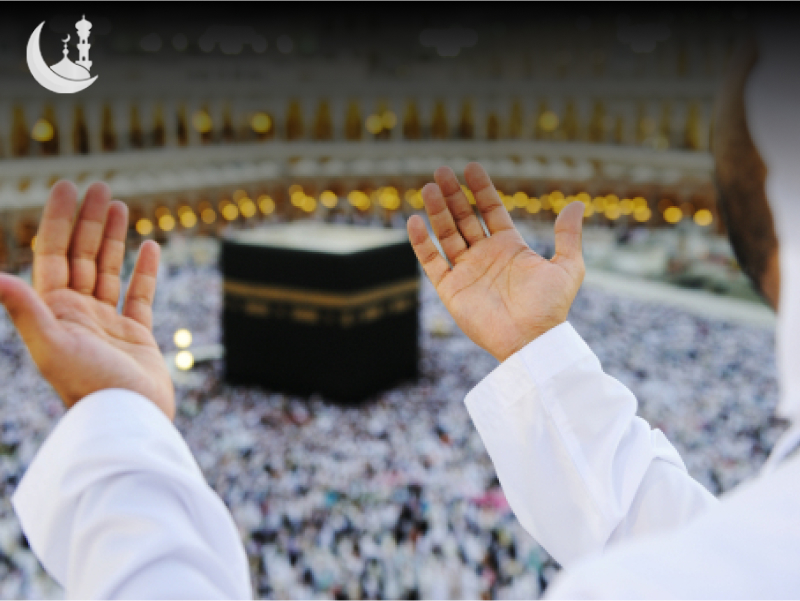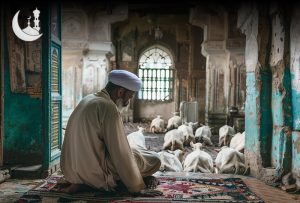Islam is the second largest religion in the world and is undergirded by a powerful base that is explained in the context of the 5 pillars of Islam in an order. These are construed as essentials that have been said to be of paramount importance acts of worship and have therefore been termed the framework with which a Muslim’s faith shall be constructed. Thus, it is quite an easy study for all those people who have some kind of interest in the real principles of Islam. The topic is descriptive as each pillar is discussed regarding its importance and place in the life of a Muslim.
1. Shahada (Faith)
Declaration of faith is the first pillar and is termed Shahada. This testimony reads: “There is no god but Allah, and Muhammad is His messenger.” Of course, this declaration represents the very heart of Islam: the idea that a Muslim accepts two things: the oneness of God and the prophethood of Muhammad.
Significance of Shahada
More than a Declaration, Shahada lives with the principles of a living covenant, an open invitation to Muslims to testify to their faith day and night. At the moment that one declares this declaration, one becomes part of the body of Islam where faith is the primary pillar of one who is identified as a Muslim.
2. Salah (Prayer)
Salah or ritual prayer is done five times a day. These have specific hours: Fajr- as early as before dawn; Dhuhr- during the middle time of the day; Asr- late afternoon time; Maghrib- as night sets in; and Isha- by night.

Salah is the attachment of man to Allah. In Salah, Muslims come before Allah to seek direction, appreciate Allah for his gifts, and seek pardon. It is said in Arabic language, and with verses of the Qur’an.
This tends to inculcate more discipline, humility, and community as, during congregational Salah, Muslims’ bonds become even tighter.
3. Zakat (Charity)
The third pillar of Islam: Zakat is an obligatory giving act, indeed, but obligatory. Muslims have to distribute some of their wealth which is generally agreed to be 2.5% of the overall savings accrued to those needing it. It is at once a means to achieve wealth redistribution and an act of purification by the giver.

Zakat provides social consciousness and richness in Islam. It is the purifying of one’s income and gratitude for whatever was granted to a person. Zakat eliminates poverty because Zakat distribution goes directly to poor people, thus promoting brotherhood among Muslims.
4. Sawm (Fasting)
The fourth pillar of Islam is Sawm, which in translation in the language is referred to as ‘fasting’ during the month of Ramadan. All Muslims refrain from food, drinks, smoking, and sexual intercourse from dawn till sunset in this month. It is a physical exercise as well as a spiritual journey.
Benefits of Sawm
Then Sawm develops self-control over one’s craving, encourages sympathy with the trials that the others would face, and comes closer to Allah. Abstinence teaches a person of his benefits hence this act is considered something for being grateful. It is the time to reflect on spiritual life, the time for prayer, and more attention and commitment on the part of Muslims so that people can be bettered and their responsibilities performed.
5. Hajj (Pilgrimage)
This is the fifth pillar, an obligatory act to make a pilgrimage to the holy city of Mecca which one has to undergo once in a lifetime if the person is in sound health and in possession of what is needed to perform it.
Hajj is taken up in the last month of the Islamic calendar; that is to say, it is undertaken in the month of Dhul Hijjah; the entire cycle of rituals takes place within three or four days.

Hajj is a belief held as the last act of worship and submits before Allah. It, therefore, has grown into a concept about unity, equality, and humbleness for which millions of Muslims from different walks of life converge to perform rituals in large numbers. Thus, the pilgrimage reminds people of their short stint on earth and community and faith.
It is a house from which any foundation is built as it relates to any individual with a faith interest, knowing the 5 pillars of Islam in its order. The 5 pillars of Islam were seen as the structural way in approaches to worship and ethics since they lead every Muslim in everyday life.
It indeed holds significant import to mention that although we were writing of how paramount the 5 pillars of Islam are, we find that it instills faith not only in an individual but also a sense of community and common objective among all Muslims worldwide. Even more applied, and modern, this concept can be put to the pillars of application in Islamic counseling by leading one through the struggles of life and establishing it on the pillar of religion.
| Pillar | Description | Significance in Islam |
|---|
| Shahada (Faith) | The Shahada is the declaration of faith, professing that there is no deity but Allah and that Muhammad is His messenger. This proclamation is a fundamental aspect of being Muslim and must be recited with sincerity to embrace Islam. | Shahada establishes a Muslim’s faith. It serves as a daily reminder of devotion and allegiance to Allah and is central to a Muslim’s identity, as well as a unifying principle across the Muslim world. |
| Salah (Prayer) | Salah refers to the five daily prayers observed at specific times throughout the day. This act of worship helps Muslims to maintain a close relationship with Allah and brings structure to their day. The five prayers are Fajr, Dhuhr, Asr, Maghrib, and Isha, each with distinct times and spiritual significance. | Regular prayer enhances discipline, humility, and the remembrance of Allah, reinforcing the connection to Him. It also promotes a sense of community when performed in congregation, such as during Friday prayers or at the mosque. |
| Zakat (Charity) | Zakat is a mandatory form of charity where Muslims give a portion (usually 2.5%) of their wealth to those in need. This act purifies wealth, encourages social equality, and ensures that the less fortunate are supported by the community. It is considered both a moral and financial obligation. | Zakat fosters compassion, empathy, and generosity while helping to alleviate poverty. It is a way to redistribute wealth and is seen as a means of cleansing one’s income and possessions. This practice reinforces social responsibility among Muslims. |
| Sawm (Fasting during Ramadan) | Sawm involves fasting from dawn until sunset during the holy month of Ramadan. During this period, Muslims abstain from eating, drinking, and other physical needs. The fast is a means of spiritual cleansing, self-control, and increased devotion to Allah. | Sawm promotes patience, gratitude, and self-discipline. It reminds Muslims of the plight of the less fortunate and emphasizes the importance of self-restraint and focus on spiritual growth. The fast concludes with the celebration of Eid al-Fitr. |
| Hajj (Pilgrimage to Mecca) | Hajj is the pilgrimage to the holy city of Mecca that every Muslim must undertake at least once in their lifetime, provided they have the financial and physical means. The pilgrimage takes place during a specific time of the year and involves several rites to honor the life of Prophet Ibrahim and his obedience to Allah. | Hajj symbolizes unity, equality, and submission to Allah. It brings Muslims from all over the world together, transcending racial and cultural differences. The pilgrimage is a deeply transformative experience that reinforces the commitment to faith. |
Conclusion
The pillars of Islam remind us of the very important virtues of faith, discipline, charity, self-control, and community spirit. Reflecting on such qualities, the life of a Muslim would then be so designed that there be a balance between individual happiness and social happiness. The criteria for the uplift of communities in a manner that may conceive a harmonious and humanitarian society distinguish the principles of Islam from the doctrine of fighting for individual salvation.
Read Also: Recognizing Boring Feelings: What They Mean and How to Address Them
It is from these 5 Pillars of Islam that one builds this additional relationship with Allah and steps out to influence the world around him positively. Praying, giving charity, or performing a pilgrimage in any of each one of these pillars provides an identity for the Muslim and guides his action in line with the principles of Islam.
Frequently Asked Questions
Q1) What are the five pillars of Islam?
The five pillars of Islam are acts of worship through which every Muslim is obligated to be involved. These include;
- Shahada (Faith)-Saying of the declaration of faith
- Salah (Prayer)-Five times a day prayers
- Zakat (Charity)-Distribution of some of your wealth to poor people
- Sawm (Fasting)-Complete fasting in the month of Ramadan.
- Hajj (Pilgrimage) At least once in a lifetime, if possible, make a pilgrimage to Mecca
Q2) What do the 5 Pillars do?
The 5 pillars of Islam provide an organizational structure governing the spiritual and moral life of a Muslim. It provides a sense of belonging, prompts disciplined activity, and teaches humanity through charity and congregational prayer. The stronger the pillars practiced by a Muslim, the greater will his faith and observance be.
Q3) Explain Pillars about daily life?
All the pillars of Islam have relevance to every act of life. For example, Salah teaches one to offer plenty of prayers throughout the day but with some space for thought over their lives, Zakat teaches about duty toward society, and Sawm helps individuals remain disciplined and balanced in life to be better and healthier Muslims.






